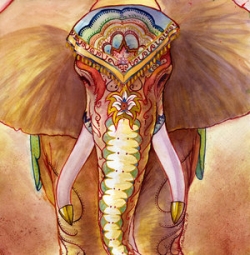Author: Jules Verne
Publisher: Penguin Books
Format: Paperback
RRP: AUD $9.95
My rating 




What it’s about…
England, 1872. Mankind was making leaps and bounds in science and exploration, laying the groundwork for the technological wonders of the 20th century. Medical advances led the global population to roughly double and the British Empire was at her zenith.
It was a time of flux, a time of discovery, a time for travel.
Jules Verne’s Around the World in Eighty Days tells the tale of one Phileas Fogg Esq., the stiff upper lipped resident of number 7 Savile Row, London, who never goes anywhere nor does anything save walk to and from the Reform Club every day, read the paper and play whist.
Until the fateful day he bets his colleagues £20,0000 that he can travel around the world in only 80 days. Yes – even taking into account delays.
His new manservant Jean Passepartout, a former circus performer turned homebody hired just that day, is reflecting with satisfaction on the quiet, routine life in store when Fogg announces they are leaving in 10 minutes to circumnavigate the globe.
“Bring my raincoat and my travel rug. Get some sturdy shoes. In any case, we won’t be doing a lot of walking. Off you go.”
 So begins the epic journey of an impenetrable man who takes in his stride every obstacle – from the discovery that his railroad is not quite finished to the rescue of an Indian princess due to be roasted alive – all without realising that his greatest obstacle is the undercover police inspector shadowing his every move.
So begins the epic journey of an impenetrable man who takes in his stride every obstacle – from the discovery that his railroad is not quite finished to the rescue of an Indian princess due to be roasted alive – all without realising that his greatest obstacle is the undercover police inspector shadowing his every move.
As time begins to run out and Inspector Fix closes in, Fogg stands to lose his bet, his fortune and his reputation. But if he opens his eyes and his heart he might just stand to gain far more.
What we think…
If the story had been any longer, it would have dragged, but as it was I found this a light, enjoyable read. Verne has a quirky way with words (assuming the English translation is more or less faithful to the original French) and though the characters are relatively one-dimensional, the dialogue often stilted and the narrator prone to stating the obvious, in a way the novel’s very dryness is what makes it entertaining.
While slightly overfond of lists, Verne spares the reader descriptions of Tolkienesque length and detail and keeps the action moving. And you can’t help but smile at the quaintness of Verne’s commentary on race, culture and “modern” travel. This book’s ironic flavour only improves with age.
Although not entirely unexpected, the ending wasn’t completely predictable either and left me with a wry chuckle and a sense of satisfaction.
Not a life-changer perhaps, but an enjoyable read nonetheless.
– DF

